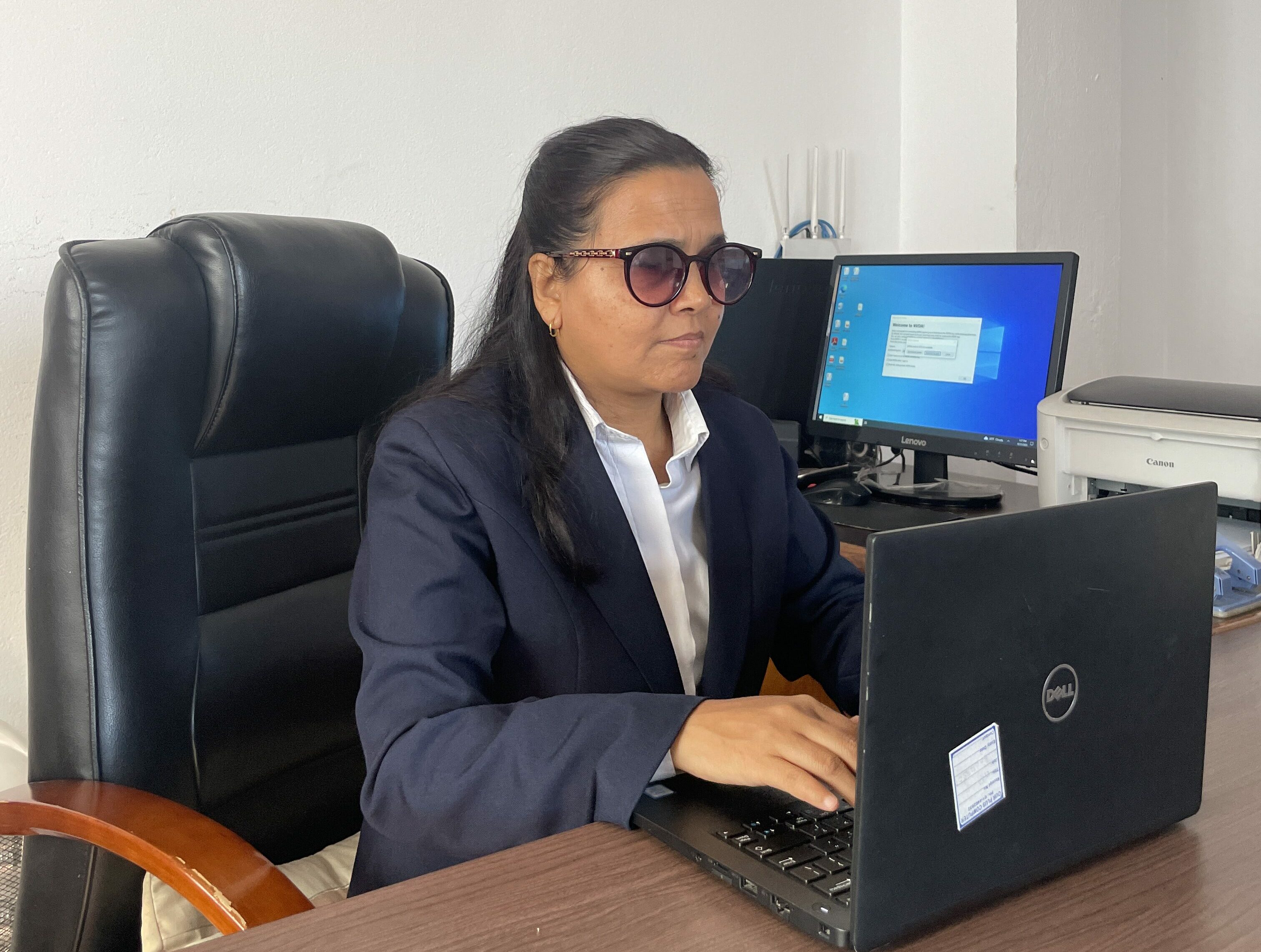
News
‘Leadership Training is a Key Focus’
Building the Capacity of Women with Visual Disabilities in Nepal
January 3, 2024
Translated from Nepali.
KATHMANDU, Nepal – According to Nepal’s 2021 Census, 2.2% of the population has some kind of disability. Among those, 5.37% are estimated to be blind and 16.88% low-vision.
And yet, there is a low awareness about disability rights, specifically disabled women’s rights. As a result, there is a gap in disaggregated data and research on gender and disability, excluding women with disabilities from several government policies and programs.
DJP Fellow Sita Sah interviews disability rights activist Neera Adhikari about the challenges faced by women with disabilities in Nepal.
Adhikari is the undersecretary of the Department of Women and Children under the Ministry of Women, Children and Senior Citizens in Nepal. She is the founder-president of the Blind Women Association Nepal (BWAN) and is currently associated with the organization as an advisor. In this edited interview, she shares her views on the steps taken by BWAN to advance the rights of women who are blind and low-vision in Nepal.
Question: What motivated you to start Blind Women Association Nepal?
Answer: I joined the Nepal Association of the Blind (NAB) as a member, started the leadership, and recognized the needs and issues faced by women with visual disabilities. The challenges and violence faced by visually impaired women motivated me to work for this marginalized group. With some help from my colleagues at NAB, I started BWAN to work for their upliftment.
Question: What is our society’s perception towards women with disabilities in our country?
Answer: The situation for women with disabilities living in urban areas is somewhat better, but for those residing in rural areas, it is still quite challenging. They often face discrimination from family and society which prevents them from venturing outside their homes. In a household where there are two children, one disabled son and one daughter, societal beliefs often favor sending the son to school while neglecting the daughter’s education, perpetuating biases.
Families tend to keep their disabled daughters confined to the house with the intention of providing them with a safe environment, but this restricts their ability to be self-sufficient and independent. Consequently, these women face limitations in their personal growth and leadership development.
In various aspects such as education, healthcare and employment, women with disabilities are lagging compared to disabled men.
Question: Which programs for rural women with disabilities has BWAN organized? How effective were they?
Answer: BWAN has organized targeted programs in rural areas in coordination with other friends, focusing on women with disabilities. While we’ve established committees in several districts, challenges persist in providing consistent support due to staffing and training constraints. Our efforts to assist vulnerable women with disabilities involved in [court cases, such as those involving sexual harassment, rape and property rights,] have seen progress, but sustaining their daily needs remains a challenge. Awareness programs have been delayed because our organization is small and we have a limited budget. We recognize the importance of these programs and are actively exploring creative solutions to [launch and conduct] them effectively within our resources.
Question: Could you talk about the rehabilitation center that the Blind Women Association Nepal has opened for women with visual impairments?
Answer: BWAN has established [a rehabilitation center] at Gaurigunj, Chitwan, in contract with a blind woman in her residence. With financial support from the provincial government, we have conducted various self-employment-based training programs, including snack-making and Phenyl (a brand of bathroom disinfectant) production. Additionally, this year, we organized mobility training, soap making, home science, and other activities. Sexual and Reproductive Health (SRH) training was also provided to both college-going and uneducated girls and women with vision impairments.
Our primary objective was to offer shelter to homeless women with vision impairments and to provide a secure environment for those who have experienced sexual harassment, abuse, violence and rape. The center serves as a shelter for these vulnerable individuals, aiming to address the challenges they face and provide the necessary support. Unfortunately, the financial limitations have forced us to discontinue the center, impacting our ability to extend vital assistance to those in need.
Question: What challenges do visually impaired women face in employment, especially in the private sector and foreign institutions? How are these challenges being addressed, and what solutions have been implemented?
Answer: Visually impaired women encounter significant obstacles in employment, particularly in the private sector and foreign institutions due to misconceptions and lack of accessibility. Employers often hesitate to hire them, citing concerns about their disability and limited capabilities. Efforts to bridge this gap have been limited, with issues like lack of accessible technology and awareness persisting.
In terms of solutions, BWAN is advocating for policy changes and conducting gap analyses with policymakers. We’re also focusing on economic upliftment through initiatives like capacity-building training, scholarships, and emergency funds. Plans are underway to establish a crisis management center addressing the unique needs of visually impaired women. Leadership training is a key focus for women with disabilities.
Sita Sah has over five years of professional experience spanning various sectors and NGOs and has most recently served as a project assistant at the Blind Women Association Nepal (BWAN) since February 2022. Alongside her professional pursuits, Sah is deeply passionate about creative writing, particularly short stories and poems. She finds solace in sad songs and enjoys reading novels in her leisure time.
News From the Global Frontlines of Disability Justice

Rwanda’s Marburg Crisis
As Rwanda confronts its first-ever Marburg virus outbreak, people with disabilities face heightened risks — not only from the virus but also from the lack of accessible health information. “Without proper accommodations, such as sign language interpreters, captions, Braille, or visual aids, the Deaf and DeafBlind community may miss crucial information about how to protect themselves, symptoms to watch for, or where to seek help in case of infection,” says Joseph Musabyimana, executive director of the Rwanda Organization of Persons with Deaf Blindness.
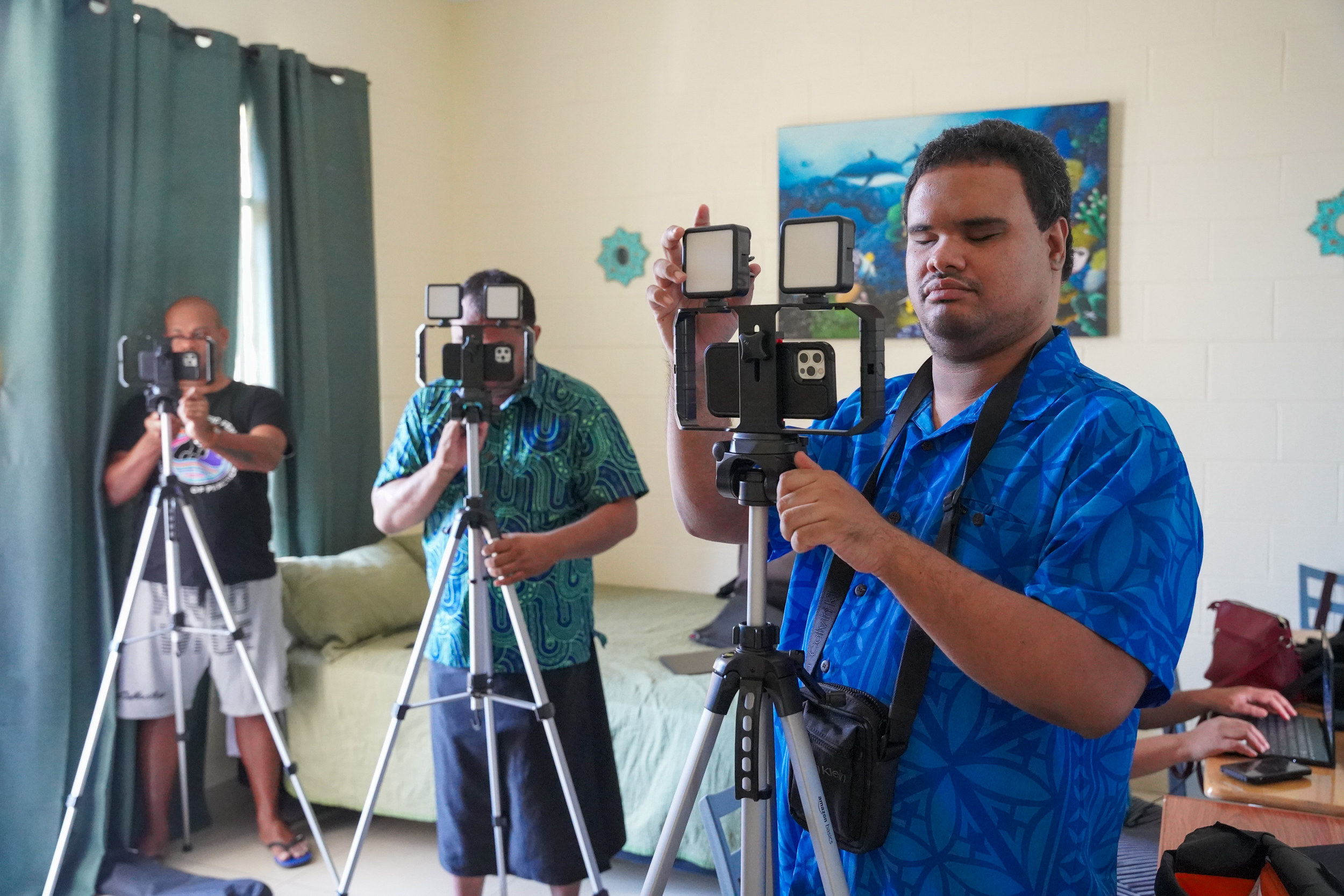
Capturing Vision Through Sound and Touch
Last summer, the DJP trained Indigenous activists with disabilities from the Pacific on the iPhone camera to create a documentary series on disability and climate change. With VoiceOver, the iPhone provides image descriptions for blind and low-vision filmmakers and offers other accessible features. “If you think about it, it doesn’t make sense for a blind person to use a camera,” says DJP filmmaker Ari Hazelman. “The iPhone gives you more avenues to tell your story in a more profound way as a blind person.”
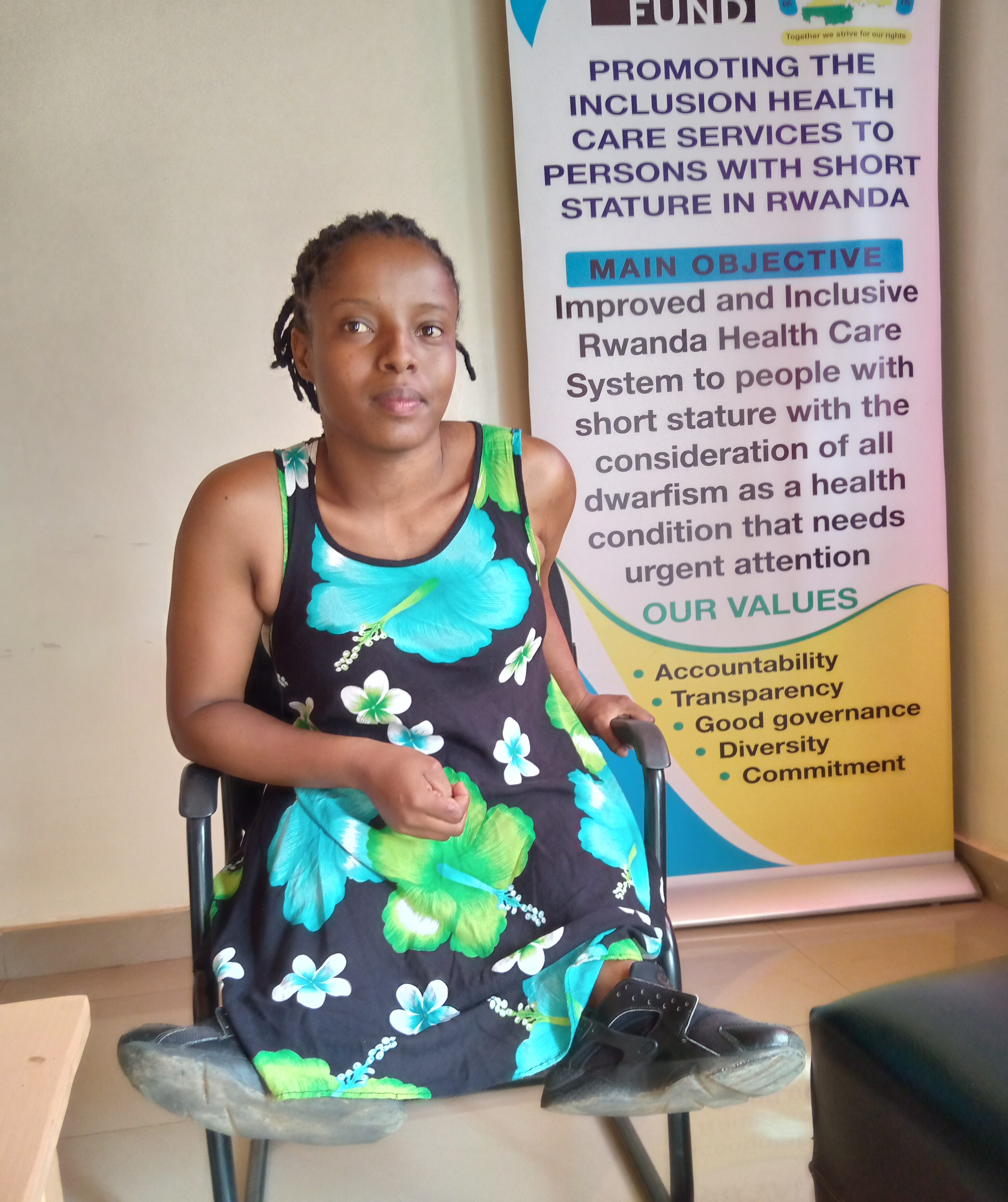
Work for All
The We Can Work program equips young Rwandans with disabilities to navigate barriers to employment through education, vocational training, and soft skills development. By fostering inclusive workplaces and advocating for policy changes, the program aims to reduce poverty and promote economic independence. Participants like Alliance Ukwishaka are optimistic that the program will enable them to achieve their dreams and showcase their potential. The initiative is part of a larger effort to support 30 million disabled youth across seven African countries.
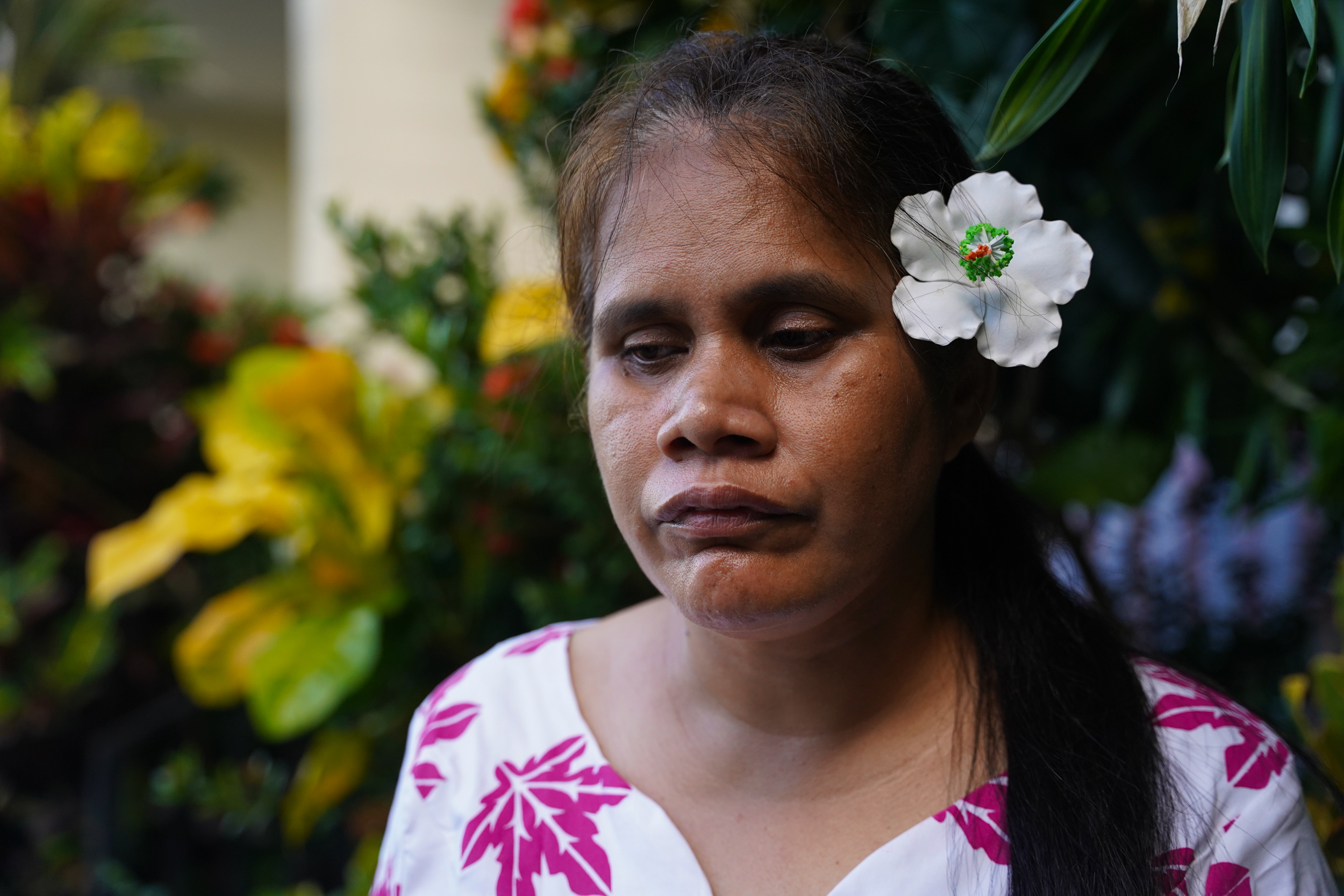
Global Recognition
Faaolo Utumapu-Utailesolo’s film “Dramatic Waves of Change” has been named a finalist in the Focus on Ability International Short Film Festival. The film, completed during a Disability Justice Project workshop in Samoa, highlights the impact of climate change on people with disabilities in Kiribati. Utumapu-Utailesolo, who is blind, used an iPhone with accessibility features to create the film. “Do not leave people with disabilities behind when [you] plan, implement, and monitor programs regarding climate change and disaster,” she says. Her achievement is a testament to the power of inclusive filmmaking.
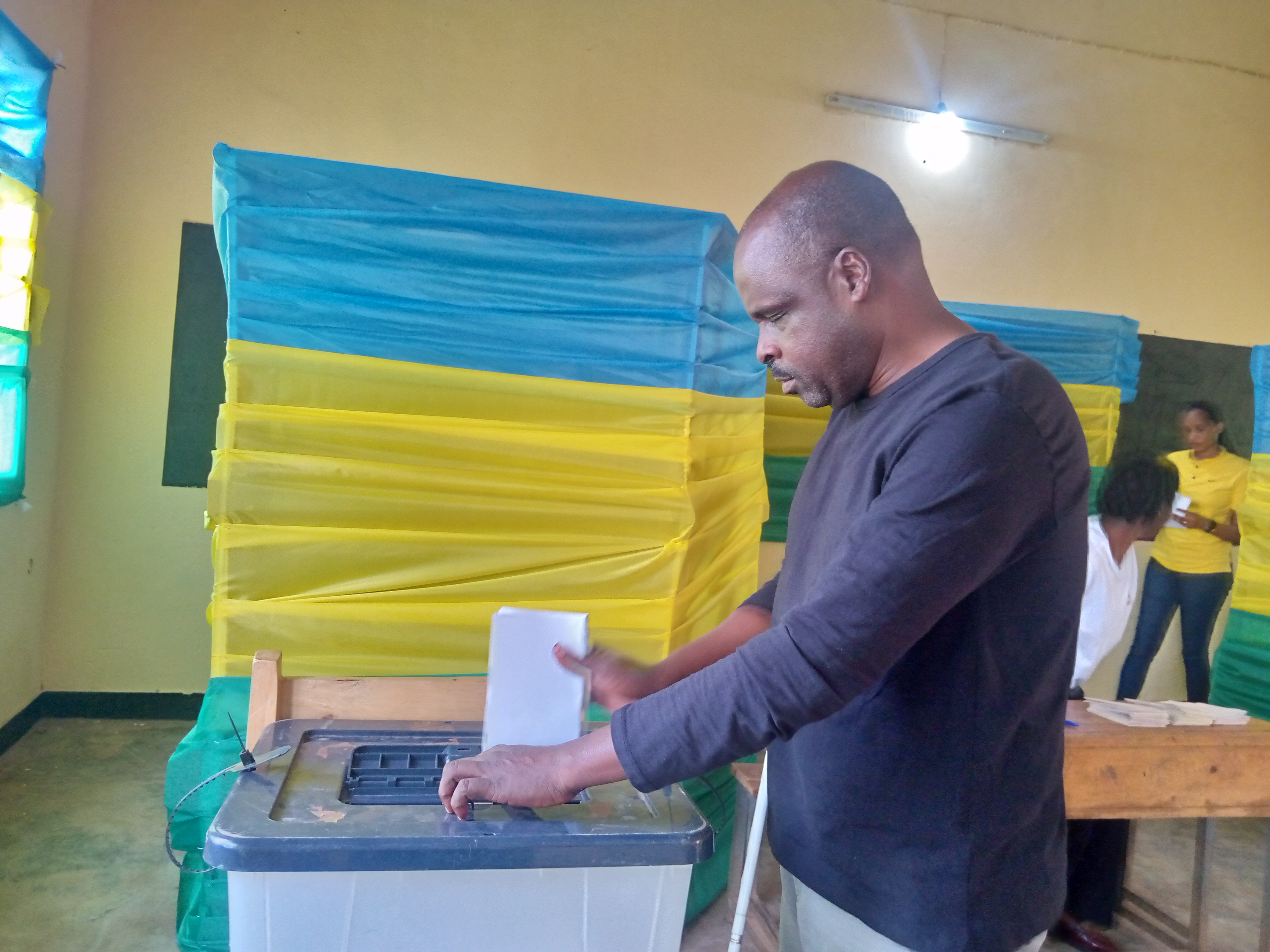
Advancing Democracy
Rwanda has made significant progress in making its elections more accessible, highlighted by the July 15 general elections where notable accommodations were provided. This was a major step forward in disabled Rwandans’ quest for equal rights and participation. “You cannot imagine how happy I am, for I have voted by myself and privately as others do accessibly,” says Jean Marie Vianney Mukeshimana, who used a Braille voting slate for the first time. “Voting is a deeply emotional and meaningful experience for a person with any disability in Rwanda, reflecting a blend of pride, empowerment, and hope.”
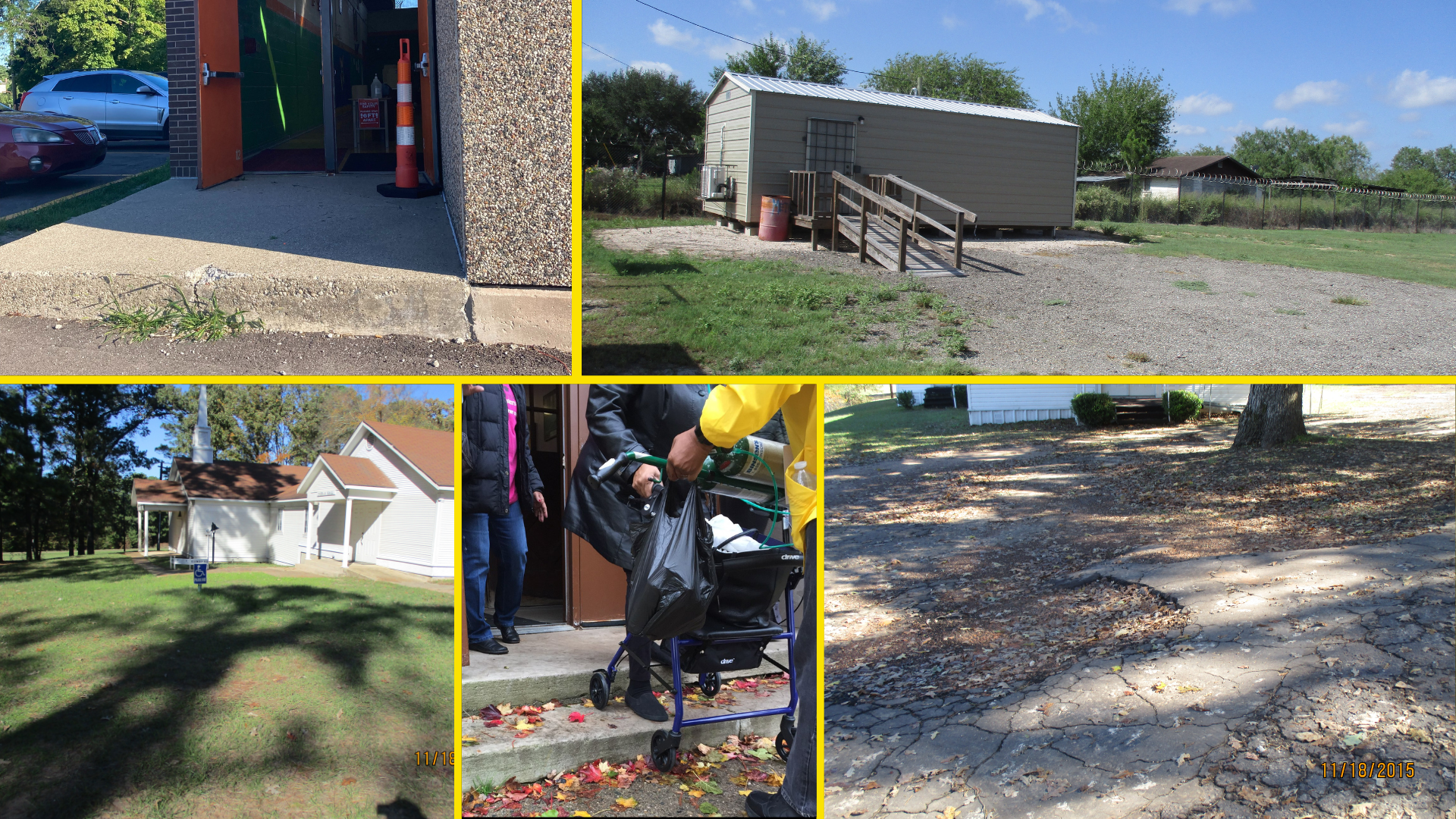
Barriers to the Ballot
Despite legislation like the Americans with Disabilities Act, barriers at the polls still hinder — and often prevent — people with disabilities from voting. New restrictive laws in some states, such as criminalizing assistance with voting, exacerbate these issues. Advocacy groups continue to fight for improved accessibility and increased voter turnout among disabled individuals, emphasizing the need for multiple voting options to accommodate diverse needs. ““Of course, we want to vote,” says Claire Stanley with the American Council of the Blind, “but if you can’t, you can’t.”